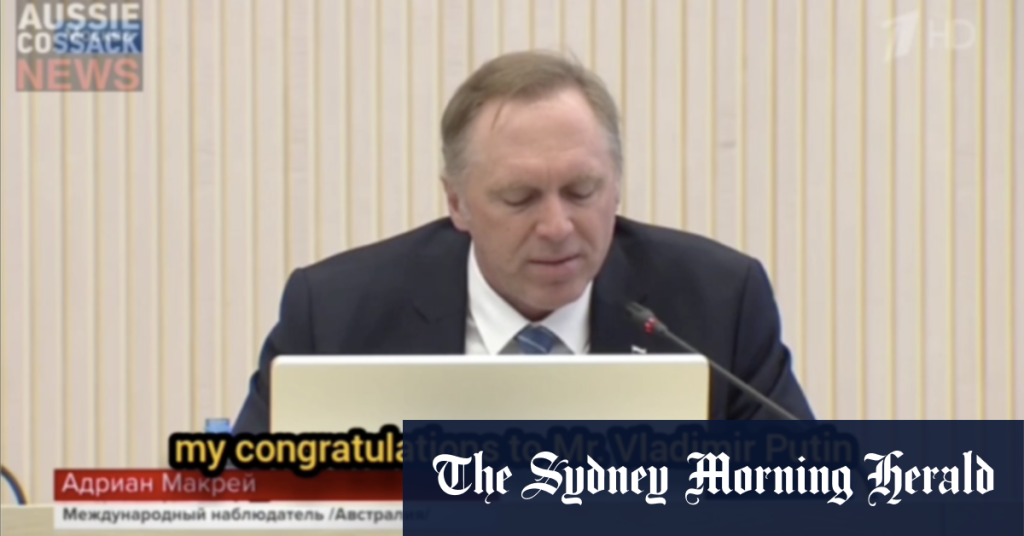Port Hedland councilor Adrian McRae made headlines after he appeared on Russian television praising Vladimir Putin’s election win. McRae, who was part of an international delegation to observe the presidential elections in Moscow, touted Putin’s victory as a “great result” and commended the Russian people for their support.
The video of McRae’s comments quickly went viral, sparking controversy and backlash in Australia. Critics condemned his praise of Putin, citing the Russian leader’s controversial tactics and human rights abuses. McRae’s actions were seen as endorsing a leader who is known for cracking down on dissent and stifling political opposition.
In response to the backlash, McRae defended his statements, stating that he was simply expressing his observations of the election process and congratulating Putin on his win. He insisted that his comments were not meant to show support for Putin’s policies or actions, but merely to acknowledge the outcome of the election.
The Port Hedland council distanced themselves from McRae’s comments, stating that his views were his own and did not reflect the council’s stance. They emphasized the importance of upholding democratic values and respecting different political perspectives within the community.
As the story gained traction in the media, McRae faced calls for his resignation from the council. Some members of the community expressed concerns about his ability to represent their interests effectively, given his public support for a controversial foreign leader.
Moving forward, the incident serves as a reminder of the potential implications of public statements made by elected officials. While individuals are entitled to their own opinions, the role of a councilor is to represent and serve the best interests of the community. McRae’s actions highlight the need for transparency, accountability, and sensitivity when engaging in public discourse on sensitive political issues.


